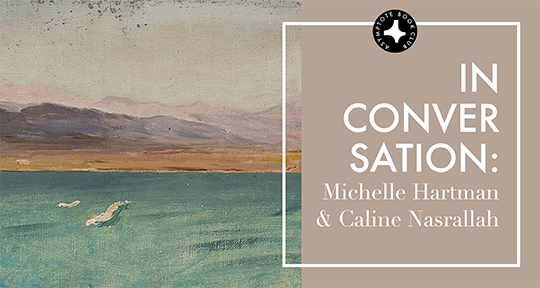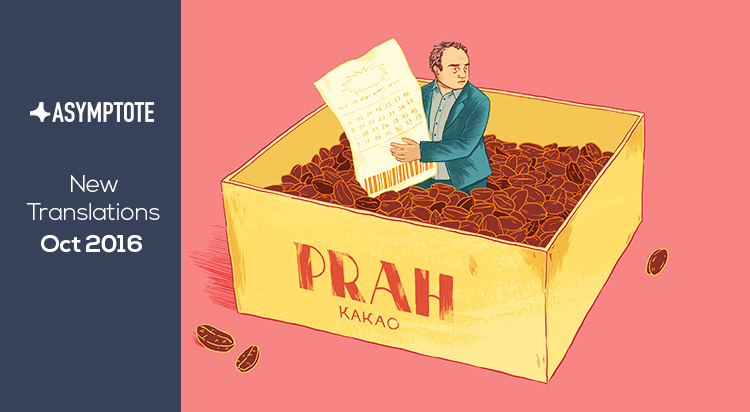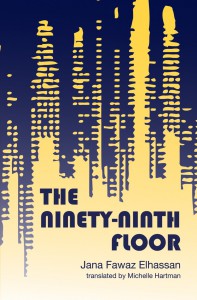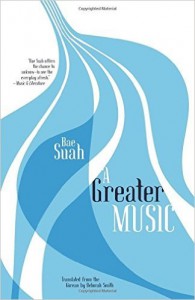When it was first published in 2019, A Long Walk from Gaza resounded with Asmaa Alatawna’s evocative descriptions of girlhood, migration, and life under occupation, gathered in an acute testament against the societal and political repressions of a woman’s liberties. Today, in light of the events over the last year, it also preserves a city that has since been overwritten with violence, layering the streets, neighbourhoods, and homes of memory over the present map of destruction. In this following interview, translators Michelle Hartman and Caline Nasrallah discuss their process in translating this nuanced portrait of Palestinian life, the element of double marginalisation within the narrative, and the emotionality of working with a story that evokes the now-gone.
The Asymptote Book Club aspires to bring the best in translated fiction every month to readers around the world. You can sign up to receive next month’s selection on our website for as little as USD20 per book; once you’re a member, join our Facebook group for exclusive book club discussions and receive invitations to our members-only Zoom interviews with the author or the translator of each title.
Ibrahim Fawzy (IF): How did you come across A Long Walk from Gaza?
Michelle Hartman (MH): I have a relationship with Interlink Publishing. It’s a smallish, independent publisher based in Northampton, Massachusetts, and the only Palestinian-owned publisher in the United States. It’s committed to doing many different things, particularly bringing fiction written in Arabic to English readers—and it’s been doing this for a very long time. There’s a significant list of Arab writers whom the publisher wants to bring to life in English. They occasionally send me novels, and A Long Walk from Gaza was one of them. As Caline and I were working on another project at the time, I sent this book to her for her opinion.
Caline Nasrallah (CN): As Michelle said, we have already worked on several things together, so we have this relationship of her sending me books to read. I’ll then go through these books and decide if we could continue working on them. Once she sent me Asmaa’s novel, I was so taken by it, and I thought it was an important project we had to work on. I felt a duty. I read it, then we discussed it more, and we went ahead.
IF: That’s great. As a literary translator, I usually read a book and find something that speaks to me, motivating me to translate it. What drew you to this book? What are the elements that convinced you to spend much time with it?
CN: Asmaa’s novel is a must-read because of the way it describes life under occupation and all of the hardships that come along with that, specifically in Gaza. There’s little that comes out of Gaza because of the situation on the ground, so the book felt like a lens into something we had never really seen before—that made it feel more relevant. Asmaa reveals this double layer of life under occupation, tracing life as a girl and a woman under occupation, the reality of occupation and internal issues impacting the society in which she lived. While united within a cause, women were also affected by society’s actions. It’s imperative to recognise this aspect, even though it’s often overlooked in literature focusing on a common enemy. Calling out injustice wherever it exists is essential.





Announcing Our September Book Club Selection: A Long Walk From Gaza by Asmaa Alatawna
Alatawan’s novel is both personal and political; at its heart, it’s a story about freedom.
In Asmaa Alatawna’s mesmerizing and clear-sighted debut novel, A Long Walk from Gaza, the long journey of migration is revealed as a dense mosaic of innumerable moments—a gathering of the many steps one takes in growing up, in fighting back, and in learning the truths about one’s own life. From the Israeli occupation to the daily violences of womanhood, Alatawna’s story links our contemporary conflicts to the perpetual challenges of human society, tracking a mind as it steels itself against judgment and oppression, walking itself towards selfhood’s independent definitions. We are proud to present this title as our Book Club selection for the month of September; as Palestine remains under assault, A Long Walk from Gaza stands as a powerful narrative that resists the dehumanizing rhetoric of war.
The Asymptote Book Club aspires to bring the best in translated fiction every month to readers around the world. You can sign up to receive next month’s selection on our website for as little as USD20 per book; once you’re a member, join our Facebook group for exclusive book club discussions and receive invitations to our members-only Zoom interviews with the author or the translator of each title.
A Long Walk From Gaza by Asmaa Alatawna, translated from the Arabic by Caline Nasrallah and Michelle Hartman, Interlink Publishing, 2024
There are some books that grab you from the very first line and hold your attention tight, right through every single word to the end; even once you’ve finished reading them, they keep delivering with their exquisite phrasings and stunning imagery, their deft, original storytelling. Asmaa Alatawna’s A Long Walk from Gaza, co-translated by Caline Nasrallah and Michelle Hartman, is one such novel. Through her enthralling and thoughtful prose, Alatawna unfolds idea after idea, fact after fact, emotion after emotion, recounting a tumultuous upbringing and journey that moves with both personal and universal resonance.
A Long Walk from Gaza is Alatawna’s debut in both Arabic and English—a semi-fictionalized, coming-of-age novel. Originally published in 2019 as Sura Mafquda, it explores the struggles of a teenage Gazan girl as she rebels against her surroundings, both at home and at school, and her heartbreak as she leaves Gaza for a new life in Europe. Her escape doesn’t resolve her problems but instead introduces new challenges, revealing the persistent, ongoing internal conflict of exile. While portraying life and a childhood under Israeli occupation and oppression, Alatawna also takes an incisive, knowing look at the patriarchal system of her own people. READ MORE…
Contributor:- Ibrahim Fawzy
; Language: - Arabic
; Place: - Palestine
; Writer: - Asmaa Alatawna
; Tags: - autobiographical novel
, - exile
, - feminism
, - Interlink Publishing
, - liberation
, - migration
, - occupation
, - Palestinian literature
, - social commentary
, - War
, - Women Writers